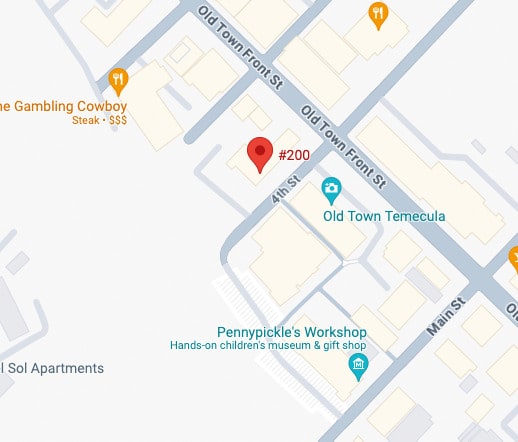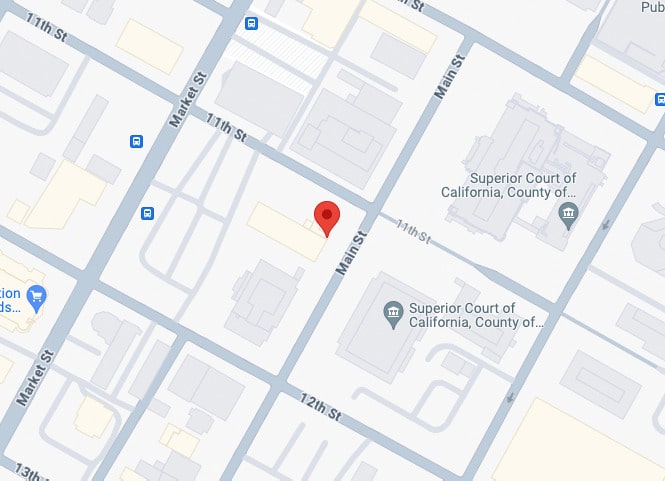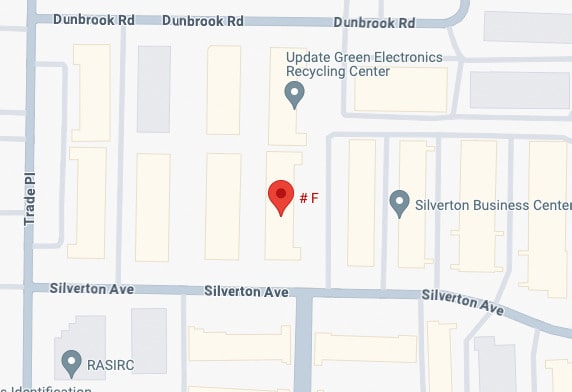Under California law, fraud is an intentional misrepresentation or omission intended to derive an undeserved benefit of money or property. Fraud is charged as a felony when you unlawfully gain money or property worth $950 or more or cause a loss of a similar amount to another person. When you are arrested and charged with felony fraud, you will be detained in jail, where you could remain until your case ends.
Unfortunately, the prosecution may take longer to build a case against you. You can avoid spending time in jail by posting bail. Bail assures the court that you will return for scheduled court proceedings and trial.
The court sets your bail amount depending on different factors surrounding your case. Due to the severity of felony fraud, the court can set an unaffordable bail amount. Instead of staying in jail for lack of bail money, you can secure a release through bail bonds provided by surety companies. The surety company will provide financial assistance and guide you through the release process.
An Overview of Felony Fraud in California
An arrest and a fraud charge involve allegations of illegal activities done for financial gain. Fraud is a white-collar crime that does not cause physical injuries to other people but results in severe economic losses. For this reason, the courts are aggressive during investigations. Arrest, bail setting, and prosecution of these offenses. Common felony fraud charges under California law include:
Identity Theft
Under California Penal Code 530.5, you commit a crime of identity theft when you unlawfully obtain another person’s identifying information and use it to obtain goods or services. When you face charges of identity theft, the prosecution must prove the following elements to secure a conviction:
- You willfully obtained another person’s information.
- You intended to use the information to commit fraud.
Identity theft can be charged as a felony or a misdemeanor, depending on the circumstances. You will be charged with felony identity theft if you are a repeat offender or committed another fraud crime using your stolen identity. A felony conviction for identity theft will result in a prison sentence ranging from sixteen months to two or three years and a fine of not more than $10,000.
Forging a Deed
Under California Penal Code 115, forging a deed is a form of real estate fraud that involves registering, recording, or filing false documents for use in a public records office.
You can be charged with this offense when you attempt to sell or acquire property belonging to another person. Proving your liability under this statute requires the prosecution to prove the following elements:
- You made a misstatement or false representation.
- You knew or should have known that you were making fraudulent documents.
- You acted with fraudulent intent.
- The victim relied on your misrepresentation when buying the property or approving a loan taken against the property.
- You caused a loss to another person.
Forging deeds or public records is a felony punishable by a sixteen-month, two-year, or three-year prison sentence. Additionally, the court can impose fines of up to $10,000.
Senior Fraud
Under California PC 368(d) and (e), senior fraud involves mismanaging money, property, or assets belonging to a person over sixty-five years. You can be charged under this statute for acts like:
- Failure to purchase necessities for an elder whose finances you manage.
- Failure to pay an elder’s bills for which you are responsible.
- Making unauthorized transfers of money from an elder’s account.
- Making fraudulent changes to an elder’s will.
Before your conviction under this statute, the prosecution must prove that you were responsible for managing an elder’s finances and wrongfully used the assets or finances.
Senior fraud is a felony for repeat offenders or defendants who cause significant financial losses to the elder. A felony conviction for senior fraud carries a prison sentence of two, three, or four years and a fine not exceeding $10,000.
Credit Card Fraud
California PC 484(g) prohibits the unauthorized use of another person’s credit card or credit card information. You can be charged with credit card fraud if you use the information from fraudulently obtained credit cards to obtain money or property. You can be accused of forgery and credit card fraud if you alter the credit card information.
You will face felony fraud charges if you use fraudulently obtained money or property worth $950 or more using stolen or altered credit cards. As a felony, the offense is punishable by a prison sentence of sixteen months, two years, or three years.
Auto Insurance Fraud
You commit the crime of auto insurance fraud by engaging in the following acts:
- Making false insurance claims or deceiving the insurance company to obtain benefits you do not deserve under PC 550.
- Damaging or hiding vehicles intending to receive insurance benefits under PC 548.
- Paying an insurance agent for client referrals by auto repair shops
Auto insurance fraud is a wobbler. You will be charged with felony auto insurance fraud if you cause a substantial financial loss to the insurance company or face multiple counts of the crime. A conviction for this offense can mean you will serve a prison sentence of two, three, or five years.
Instead of spending your entire sentence behind bars, the court could sentence you to formal probation for felony fraud. Probation for a felony conviction lasts for up to five years. Not all defendants are eligible for probation. Therefore, your attorney can negotiate with the prosecution for this sentence.
While on probation for felony fraud, the court could impose some conditions that you must follow, including:
- Regular check-ins with a probation officer
- Avoid committing other crimes.
- Victim restitution
- Payment of all your fines
In addition to incarceration and fines, a conviction for felony fraud can have severe immigration consequences. If you are a non-immigrant, a conviction for one of these offenses could result in deportation or inadmissibility in the United States.
Legal Defense Against Felony Fraud
Facing a conviction for felony fraud can result in severe legal and collateral consequences. Therefore, you must fight the charges aggressively when arrested and charged with this offense. You can meet with your legal team and freely discuss the details of your case by posting bail and securing an early release from jail.
Common defenses you can present against felony fraud charges include:
Lack of Intent
A critical element that the prosecution must prove to establish your liability for felony fraud is your intent to commit the crime. Proving criminal intent is a complex task for prosecution. You can avoid a conviction under this statute if they cannot prove your intent to defraud an alleged victim beyond a reasonable doubt.
Duress
Duress is a defense when you believe you were coerced into engaging in fraudulent acts. You can use this defense in your case if there is evidence to prove that you or your family were at risk of injury if you did not engage in the alleged acts.
Entrapment
Sometimes, law enforcement officers use different tactics to induce you into committing crimes you could have committed without their insight. If you can prove that the police entrapped you, you could avoid a conviction for felony fraud.
Insufficient Evidence
Depending on the specific violation that causes your arrest and charges for felony fraud, the prosecution must prove all the elements of the crime beyond a reasonable doubt. This is done by submitting physical evidence, circumstantial evidence, and witness testimony. You can avoid a conviction by arguing that your case has insufficient evidence.
Posting a Bail Bond for Felony Fraud
You could be released from jail with a pending felony fraud case when you post bail. After your arrest, the court will hold a bail hearing where the judge determines the appropriate bail amount you must pay for your release.
Common factors that could impact your felony fraud bail include:
- Bail schedules –A bail schedule lists all offenses under California law and the recommended bail amounts for each. The judge will use the amount indicated on the bail schedules as a base when setting bail.
- Circumstances of your case–Different offenses qualify as felony fraud. Therefore, the specific circumstances surrounding the case could cause an increase or reduction in your bail amount.
- Your criminal history–The court could impose a high bail amount for your felony forgery if you are a repeat offender or have a long history of criminal convictions.
- Your flight risk is the likelihood of fleeing after a bail release. Bail is a guarantee that you will return for scheduled court proceedings after a release with a pending case. Therefore, your bail amount will increase with your flight risk.
You can post your bail in cash if you have the financial capacity. You must present the full bail amount to the court clerk before release. The need for a cash bail could lead you to liquidate your assets or enter into debt. Additionally, posting a high bail amount in cash can open the channels for financial scrutiny.
Many defendants opt to secure a release using a bail bond. Surety companies licensed to provide these services in the state offer bail bonds. Obtaining a bail bond for your felony forgery involves the following steps:
Contacting the Surety Company
Before settling for one, contact different surety companies and assess their services and terms. When you contact a surety company for assistance, they will send a bail bondsman to handle your case.
Determination of your Eligibility for a Bail Bond
Not all defendants facing felony fraud charges are eligible for a bail bond. When you contact a surety bond to help you secure a release, you will provide the following information:
- Your official names
- The nature of your criminal charges
- The amount of bail needed for your release
- Jail, where you are detained
Using some of this information, the bail bond company will examine your records to establish your criminal history and flight risk. You may be eligible for a bail bond if you are a low-flight risk and have no history of skipping bail.
Enter the Bail Bond Agreement
You will sign an agreement if the surety company agrees to offer you a bail bond. In this agreement, you will accept to pay a premium fee of up to 10% of the bail bond, which is non-refundable. Additionally, you must promise to return to court as scheduled to avoid a loss of the bail bond company’s money in a forfeiture.
Sometimes, the bail bondsman will require you to provide collateral for the bail bond. Collateral could be anything from real estate property to vehicles and valuable jewelry. In your bail bond agreement, the surety company will put a lien on the property to take physical ownership of the item you seek to present as collateral.
Payment of Bail Bond Premium
The surety company will require you to pay a portion in exchange for posting your bail. This amount is the premium and acts as a service fee. The standard bail bond premium in California is 10% of the bail. However, you could negotiate the fee, depending on your circumstances.
You may not pay the service fee upfront when the bail amount is too high. In this case, you can enter into a repayment plan with your bail bond company. This allows you to make a down payment for the premium and pay the balance over a specific period.
Such an agreement gives defendants from all backgrounds a chance at a release with a pending case.
Posting of your Bail
After signing a bail bond agreement, the bail bondsman will go to court and post the full bail amount needed for your release. Since a bail bond is not punishment for felony fraud, the surety company can recover the amount paid when your case ends. While the bail amount is refundable, you will recover the amount presented to the surety company as a service fee.
Factors to Consider when Hiring a Bail Bonds Company
It can be challenging to navigate and deal with felony fraud charges and arrests. Following an arrest, the first thing that comes to mind is how to get out of there quickly and cheaply. Posting a bail bond is a practical and cost-effective method of obtaining your release from felony fraud charges for yourself or a loved one.
However, your overall experience when posting bail bonds will significantly depend on the surety company you hire. The following are some of the factors you need to consider when choosing a bail bonds company:
Reputation and Credibility
Getting someone released on bail can be a complicated procedure. Therefore, you should collaborate with a reliable surety bond company. The company will provide you with the knowledgeable direction you require to complete this process successfully. A company's reputation can be ascertained through looking up online reviews and speaking with potential clients. Hiring a company with a good reputation puts you at ease and guarantees top-notch services.
Cost
Most defendants opt for a bail bond to avoid the financial burden of posting a cash or property bond. Although a bail bond is cheaper to secure a release, the premium may be too high for felony fraud. When choosing a surety company, you can negotiate a lowered premium fee and move forward with a company that agrees to offer the reduced premium.
Flexibility of Payment Plans
California courts set high bail amounts for felony offenses. Therefore, the premium fee for your bail bond may be too high to raise in a single installment. When hiring a surety company, choose one that allows you to enter into a repayment plan. This can ensure that you are released after giving an installment and can continue to pay the balance while out of jail.
Licensing and Insurance
Before settling for their services, you should check whether a surety company is licensed and insured. A bail bond company will receive the necessary licensing if the state determines it can offer proper services for clients. Hiring an insured company ensures you are protected through the bail process.
Availability
Arrests can occur at any time. After an arrest, you want to secure a fast release. Posting a bail bond allows you to spend time with your family, go back to work, and avoid the stigma associated with incarceration. Throughout the bail process, you may have concerns that must be addressed.
When choosing a surety company, you must check whether they are available whenever you need their services. When you contact a bail bonds company and your call is unanswered, or you receive an automated message, it would be best to contact another company.
Find Expert Bail Bond Services Near Me
You can be arrested and charged with felony fraud for intentional misrepresentation or concealment of facts with the intent of financial gain to someone else. Your emotional and mental health may suffer significantly if you remain in jail while your case is pending. Thankfully, California law permits you to post bail and secure your release from custody while a felony fraud pends.
You and your family may struggle to raise the required bail money. You may look into other choices in this situation, such as bail bonds.
If the bail bonds company agrees to post your bail, you will be responsible for up to 10% of the total bail. The 10% acts as a fee for the bail bond services. At Justice Bail Bonds, we will offer the financial assistance and expert guidance you need in Temecula, CA, to make your bail release faster and less stressful. Call us at 714-541-1155 to schedule a consultation.










